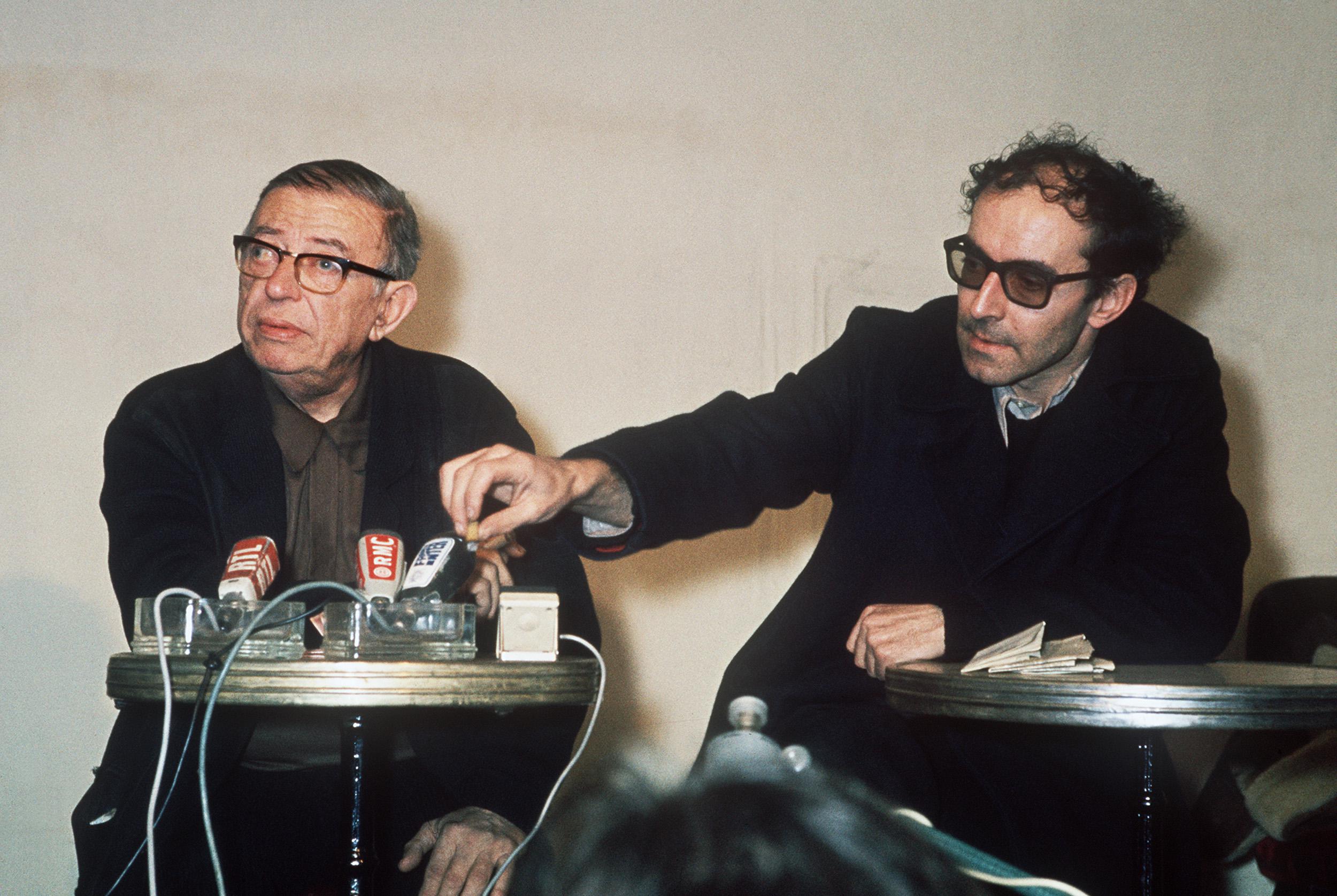It didn’t take much to get your own FBI file back in the days of J. Edgar Hoover; harboring novel ideas on the nature of human existence would suffice. That’s according to a new piece in the British magazine Prospect, which reports that, starting in 1945 and 1946, the FBI kept tabs on famed philosophers and authors Jean-Paul Sartre and Albert Camus, in hopes of discovering whether existentialism and absurdism were just communism in disguise. To Hoover, “everything was potentially a coded re-write of the Communist Manifesto,” writes Prospect’s Andy Martin. “Thus we find intelligence agents studying scholarly works and attending lectures.”
It’s funny to think of square-jawed G-Men poring over copies of The Stranger in hopes of discovering some secret cipher in Meursault’s musings, or donning turtlenecks and smoking Gauloises to blend in at collegiate lecture halls. But it’s also an aggravating reminder of just how much money and time the FBI wasted—and quite possibly continues to waste—snooping on people who were never a threat to anyone. And in the beginning, at least, the FBI seemed to have little idea of who Camus and Sartre even were. Hoover kick-started the Camus investigation by asking the head of the New York field office to take notice of “one ALBERT CANUS.” Martin notes that the misspelling was corrected when an agent “had the guts to inform the director that ‘the subject’s true name is ALBERT CAMUS, not ALBERT CANUS’ (diplomatically hypothesizing that ‘Canus’ was probably an alias he had cunningly adopted).” Cunning, indeed!
Camus and Sartre aren’t the only midcentury writers the FBI kept tabs on. Earlier this year the website MuckRock posted the FBI’s 35-page file on author and misanthrope Gore Vidal, an unabashed critic of the FBI and its leader; when Vidal insulted the FBI on a late-night television program, agents discussed whether they should respond by anonymously writing to the network with complaints that the show “stunk” and should be cancelled. After Norman Mailer, in Esquire, criticized Jackie Kennedy for being “excessively soft-spoken,” Hoover instructed his agents to look into Mailer’s life, according to a 2008 Washington Post article. This meant not only monitoring Mailer’s relationships and activities, but reading and responding to his work, sometimes hilariously; one agent remarks that Mailer’s Miami and the Siege of Chicago “is written in his usual obscene and bitter style,” which is a line any book reviewer could be proud of. The FBI also monitored Charles Bukowski, and found that the famously dissolute writer was “an excellent tenant who never associates with any of his neighbors.” If that info had leaked, it might have destroyed Bukowski’s reputation.
None of these investigations ever came to anything, of course. And why would they? While existentialism and absurdism were subversive theories, in their way, they never posed any imminent or long-term harm to America, unless you consider a rise in the number of pretentious comp lit grad students to be a threat to national security. I’ll accept the notion that law enforcement agencies need to be free to pursue leads and develop investigations without too much civilian micromanagement. But eliminate civilian oversight entirely, and this ridiculous literary surveillance program is what you get. It’s enough to make a thoughtful man ponder the meaning of this crazy world, and why, exactly, we’re all here.
